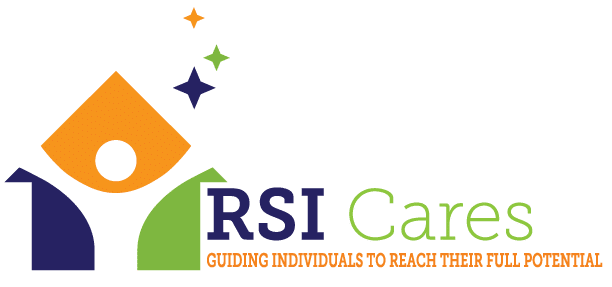How Does Speech Therapy Help People with Developmental Disabilities?
Speech therapists use a variety of techniques and activities to assist with issues related to how the mouth, tongue, jaw, and throat all work together to both create speech and perform necessary activities like swallowing and eating. Speech therapy is just one of a variety of therapy programs that residential habilitation can assist your family member in accessing.
Speech Fluency
Speech fluency doesn’t refer to being able to speak a language fluently. Instead, it refers to how speech flows, like when someone has a stutter or other issues with being able to speak smoothly. Everybody has issues with speech fluency at times, such as when speaking in public or when adding fillers like “um” as they speak. But often people with developmental disabilities have much more difficulty with speech fluency and find that speech therapy can help with that.
Articulation Trouble

Another aspect of speech therapy is helping to iron out difficulties with articulation. Speech therapists can help your family member to learn how to form her mouth properly to make correct sounds while speaking. This helps with pronunciation and enunciation. Much of articulation involves proper placement of the different parts of the mouth, like the tongue and the jaw, in order to create the right sounds.
Vocal Control
Vocal control refers to things like voice quality, pitch, and even volume. Trouble regulating vocal volume is a common problem for people who have developmental disabilities, but it’s possible to learn techniques to manage vocal control. Gaining vocal control helps with communication, particularly with new people and in new situations. Breathing exercises, relaxation exercises for vocal cords, and other types of exercises can all help to improve issues with vocal regulation. This also helps to reduce stress when learning other new skills, which is important for overall well-being.
Eating Issues
The same issues that can affect speech, like improper jaw and tongue placement, can also create problems eating. If your family member has trouble with swallowing, eating, or even drooling, speech therapy can help. Exercises that assist with articulation and speech fluency can make eating much easier and safer. This reduces issues with aspiration and can help your family member to take in the calories and nutrition that she needs to be ingesting.
Residential habilitation helps your family member to access a variety of different and necessary therapy programs, including speech therapy, to help with difficulties and with learning new skills.
If you are considering therapy programs in Avon, IN, please call the caring staff at RSI Cares. Serving Greater Indianapolis Area. Call for Immediate Info & Assistance: 317-471-0750.
- NOTICE: Indiana Direct Service Workforce Investment Grant - January 30, 2023
- Take a Break and Let Respite Care Aides Help Out - November 10, 2021
- Let Residential Habilitation Services Bring Independence to Your Child With Down Syndrome - October 20, 2021
